When British guitarist John McLaughlin and Indian tabla player Zakir Hussain teamed up in the early 1970s, they couldn’t have imagined the path-breaking journey that was ahead of them.
They founded the group Shakti, with violinist L Shankar, percussionist TH ‘Vikku’ Vinayakram and mridangam player Ramnad V Raghavan. The musical maestros presented the kind of East-West fusion not been seen before with live performances and an iconic album. The lineups changed in subsequent decades, but what remained constant was McLaughlin and Hussain as the heartbeat.
Apart from making a name for themselves as world-leading live performers, they created musical masterpieces and inspired generations, who have followed in their giant fusion footsteps.
They are currently on a 50th anniversary world tour with the latest line-up of Selva - ganesh Vinayakram, who replaced his father in the group, Shankar Mahadevan, and Ganesh Rajagopalan. They will deliver two of this year’s finest concerts at Eventim Apollo in London on June 27 and 28.
Eastern Eye caught up with arguably the greatest tabla player of all time, Ustad Zakir Hussain, to discuss the Shakti journey and forthcoming London shows. He also gave key advice to young musicians.
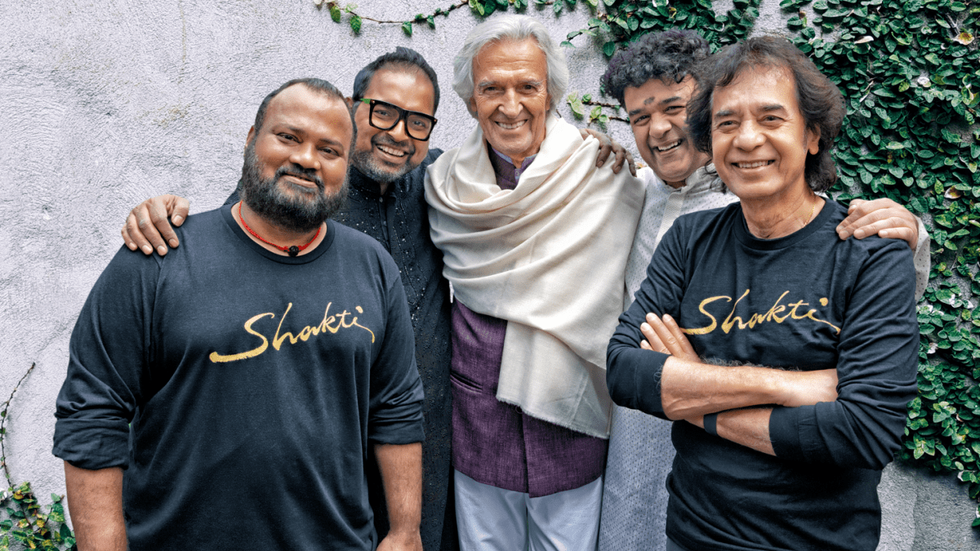
You have had such a phenomenal career, and keep powering on, what keeps that music passion alive?
My father (Ustad Alla Rakha) always said, ‘Don’t try to be a master. Just try to be a good student and you will get by just fine.’ That is at the core of the passion that drives me. We are all students from the day we are born until the day we die. The need to learn more than a need to find new ways to speak my tabla language, to tell the same story, using different vocabularies so that different genres of artists would understand what’s going on with my life. That’s a very important lesson. So that is what drives me.
John McLaughlin has been a big part of that journey…
You know, when I play with John McLaughlin, I see and hear my music through his eyes and ears. And that changes the perception. It changes the way it looks, and sounds. Therefore, it gives me a new look at my music and, lets me put light on stuff sitting in the nooks and corners that I have forgotten to explore. So, learning is what really drives you.
What are your memories of the first Shakti concert?
The ecstasy, joy, extreme happiness, a feeling of flying without wings. A feeling of being in the right place with the right group of people, who were thinking and executing exactly what I was. That is the first memory of us as Shakti performing.
What else do you remember about that day?
The concert, I think, was held at Southampton College in Long Island. I remember the Wimbledon final was being played on that day. So, it was a summer concert and we got on stage, with practically no rehearsal, and played. To be playing and improvising together, cross-legged on the platform like Indian musicians do, was a landmark moment. I thank my lucky stars that we are here today 50 years later.
Did you ever imagine that Shakti journey would last so long?
I never thought that Johnji and I would still be celebrating Shakti 50 years down the road. What an amazing journey it has been. What has remained constant through this journey about Shakti and its various incarnations is the same joy, incredible happiness, ecstasy, and the feeling of flying without wings. That has been a pronounced experience through the different changes that Shakti has gone through.
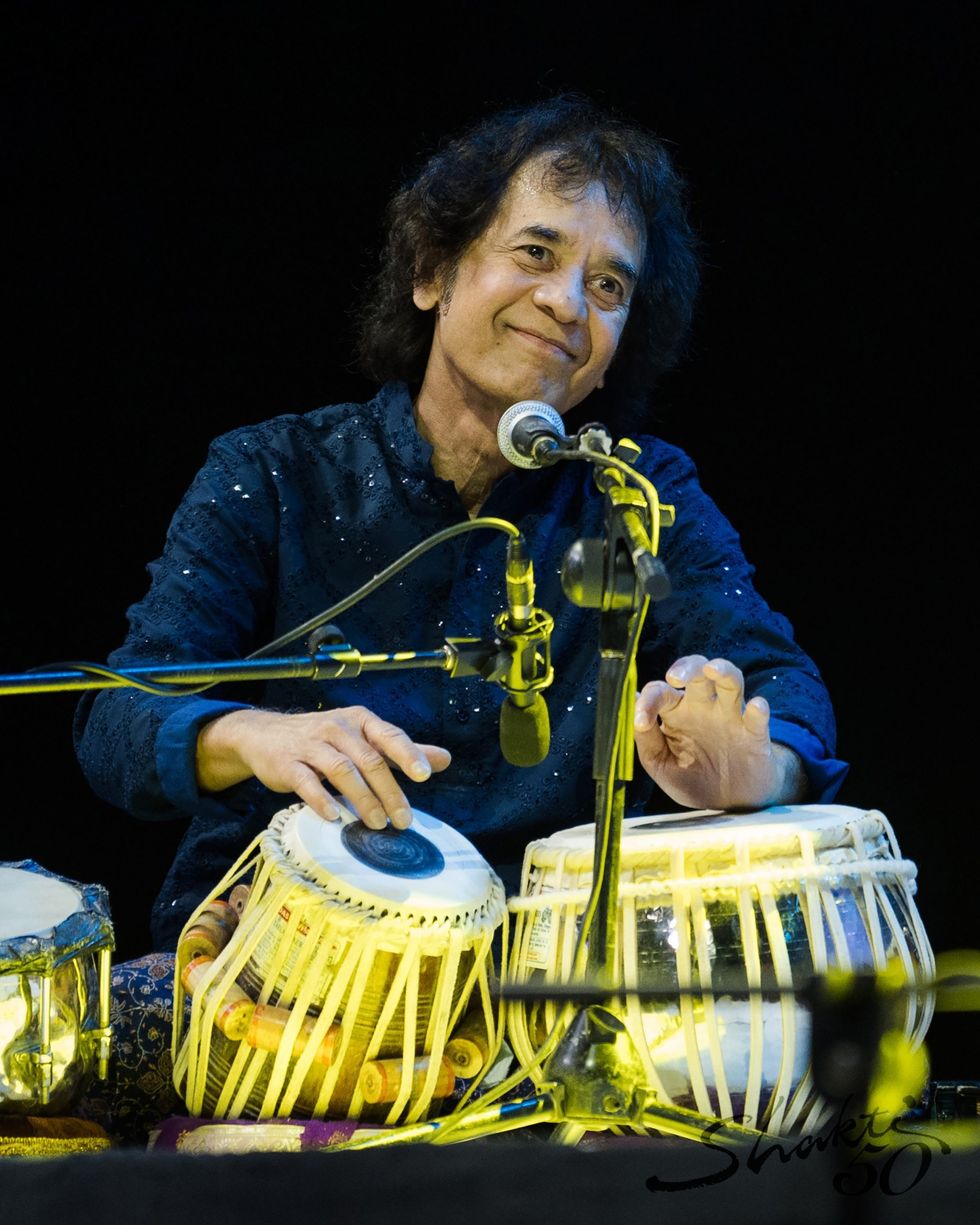
And that high standard has always been there…
So, it has not been like a new band emerges every time a new member joined in. It was more like a continuation of that feeling – a statement that came from four or five collective minds. It has always been there since the first time we played that Southampton day, which became the first record, and set the tone. That has not wavered. We still play with the same energy, vigour, passion, joy, and happiness, that existed on day one.
What has it been like doing this 50th anniversary world tour?
Doing this 50th year anniversary tour has been a delight. A feeling of being so lucky to work with Johnji, Shankar Mahadevanji, Ganesh Rajagopalanji, Selvaganeshji, and the many other musicians who have been with us. You know, we miss the incredible U Shrinivas, of course – we lost him and that really derailed us for a while before we came back again. I have to say the anniversary tour has begun well, with the same energy, love, and affection for each other.
You are bringing that beautiful energy to the UK…
I have to say that the concerts in India went amazingly well. I’m sure that our Lon[1]don shows on June 27 and 28 will have the same energy. They will be that same incredible, ecstatic, joyful, experience for not just us, but for the whole audience.
Do sky high expectations around you as a collective put pressure on you?
We have such a great time when we are performing on the stage and have been on a really great journey, so the happiness is such that there’s no question of any pressure or anything. We’re going to have a great time because we love each other. We love each other’s way of thinking about music. So, we can walk the path without having to really think twice about it. There really is no pressure. That’s what’s great about Shakti.
That camaraderie on stage between you is legendary…
The relaxed atmosphere and comforting feeling of being with each other is so strong that we can spontaneously change the arrangement of a song instantly and still deliver an incredibly tight set of music. It’s no pressure at all, especially when we get on stage. If things get a little rocky in the beginning, we get to the song Giriraj Sudha, which is like our signature tune. We get into the first riff off it and the next thing you know, we are off and running, no problem at all.
So many have followed in your footsteps, what key advice would you give to young musicians?
To those young, aspiring artists, all I have to say is, don’t be afraid to fail. Don’t be afraid to fall flat on your face on stage and look silly. It’s ok. Failure is a doorway to your first lesson towards being successful. Don’t play it safe. Take a chance, try things that you’ve never done before. And know that it’s going to turn out, right, if you keep trying it.
Tell us more about that…
It’s going to show you a new path, give you a new sound, and experience, and inspire you. All sorts of great things would happen if you go out there and try to be creative rather than just playing a tried and true package because you’re afraid to fail. So don’t be afraid to fail, just go out and do it.
Why should we all come to the London concerts?
As I said earlier, it will be an incredible musical experience of extreme happiness, ecstatic joy and feeling of flying without wings. Seeing music being created, spontaneously, intuitively, and collectively by five minds as one is something to behold. That’s what you would come to see, creativity at the level that you know, is something wonderous.
Why do you love music?
Why should I have to even think about why I love music? I love music because it is part of my DNA. The spirit of music living in my instrument is like a brother and soul mate. Like a rhythm mate, always with me and as my security blanket. My mode of expression and communication. It is where I feel at home and in control. I love music and I hope that music loves me.
Shakti at Eventim Apollo, 45 Queen Caroline Street, London W6 9QH on June 27 and June 28. www.eventimapollo.com and www.shakti50.com






 Lunchbox is a powerful one-woman show that tackles themes of identity, race, bullying and belongingInstagram/ lubnakerr
Lunchbox is a powerful one-woman show that tackles themes of identity, race, bullying and belongingInstagram/ lubnakerr She says, ''do not assume you know what is going on in people’s lives behind closed doors''Instagram/ lubnakerr
She says, ''do not assume you know what is going on in people’s lives behind closed doors''Instagram/ lubnakerr








 He says "immigrants are the lifeblood of this country"Instagram/ itsmetawseef
He says "immigrants are the lifeblood of this country"Instagram/ itsmetawseef This book is, in a way, a love letter to how they raised meInstagram/ itsmetawseef
This book is, in a way, a love letter to how they raised meInstagram/ itsmetawseef
 The crew of The Ministry of Lesbian Affairs
The crew of The Ministry of Lesbian Affairs
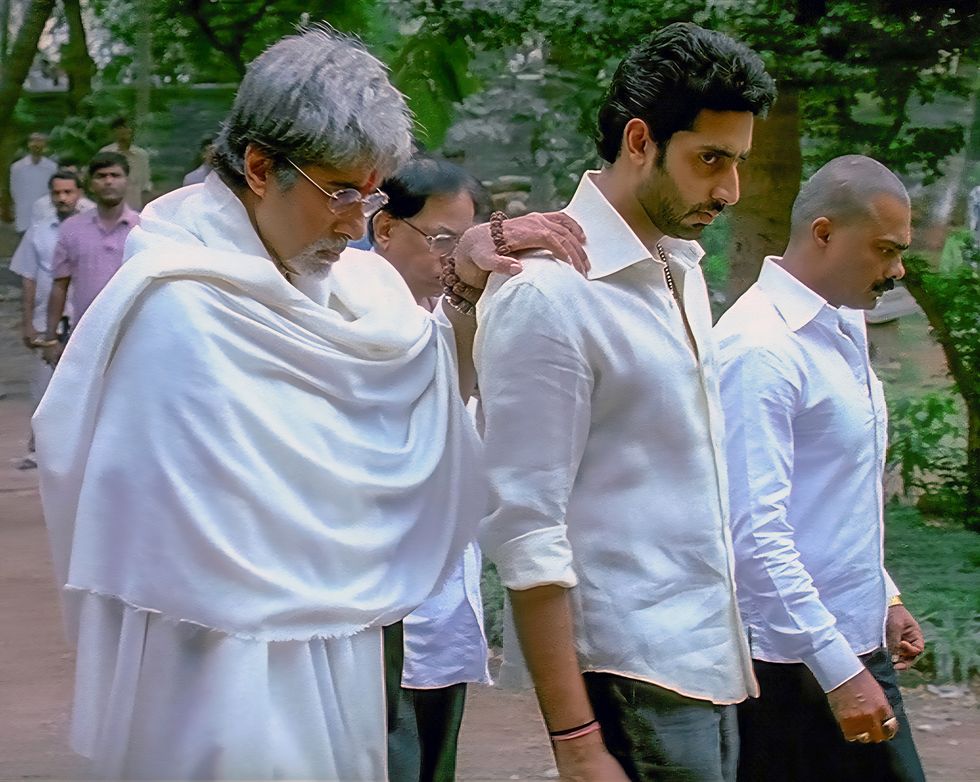 A still from Sarkar, inspired by 'The Godfather' and rooted in Indian politicsIndia Glitz
A still from Sarkar, inspired by 'The Godfather' and rooted in Indian politicsIndia Glitz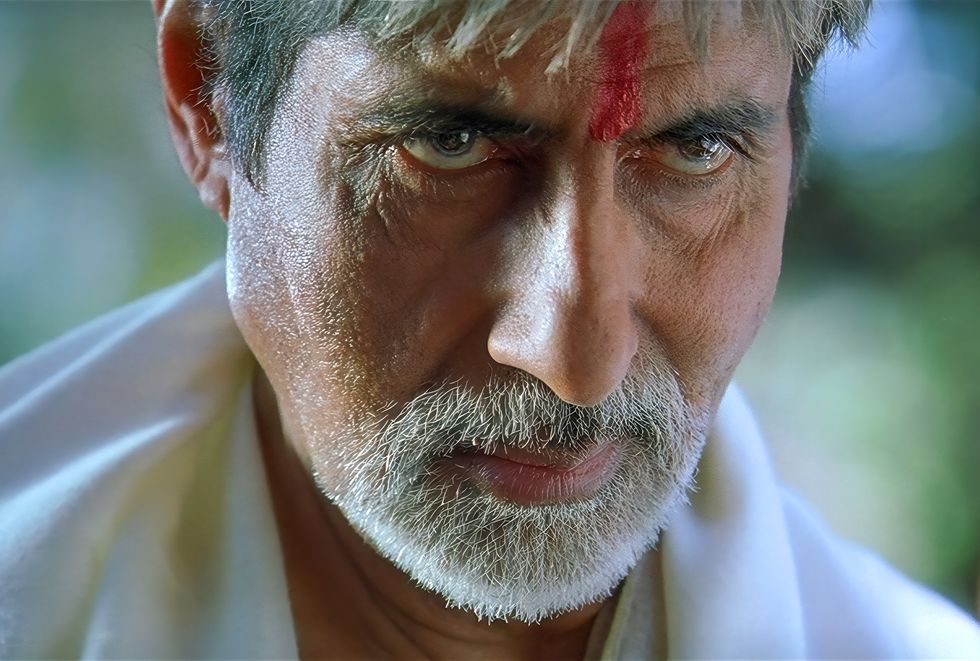 Sarkar became a landmark gangster film in Indian cinemaIndia Glitz
Sarkar became a landmark gangster film in Indian cinemaIndia Glitz The film introduced a uniquely Indian take on the mafia genreRotten Tomatoes
The film introduced a uniquely Indian take on the mafia genreRotten Tomatoes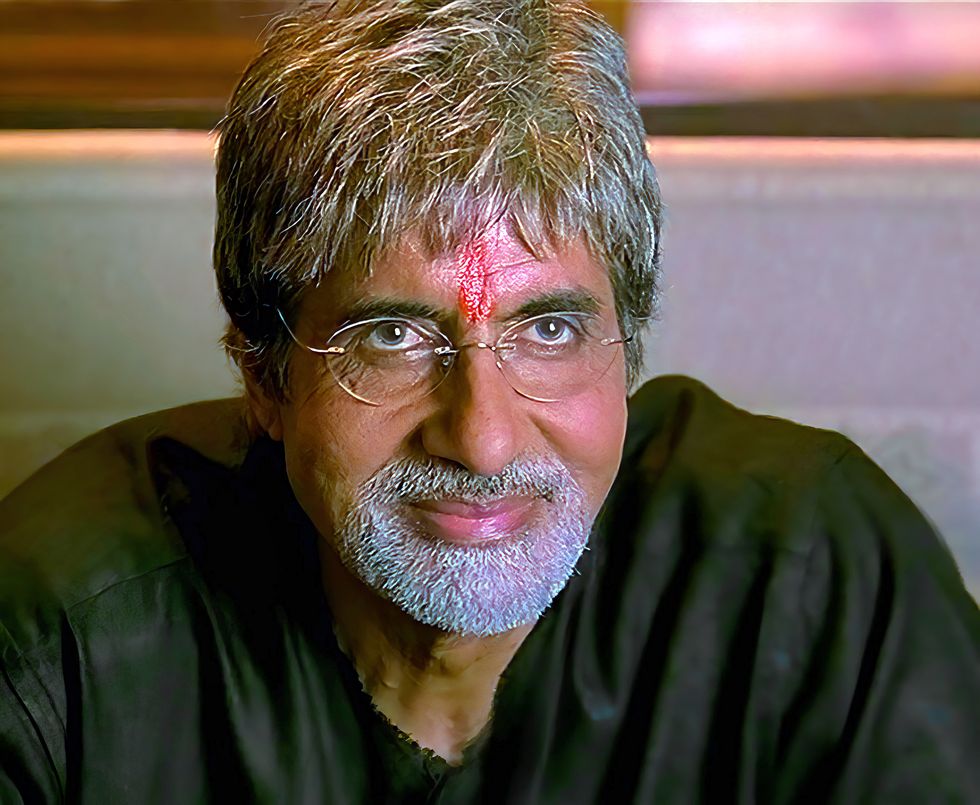 Set in Mumbai, Sarkar portrayed the dark world of parallel justiceRotten Tomatoes
Set in Mumbai, Sarkar portrayed the dark world of parallel justiceRotten Tomatoes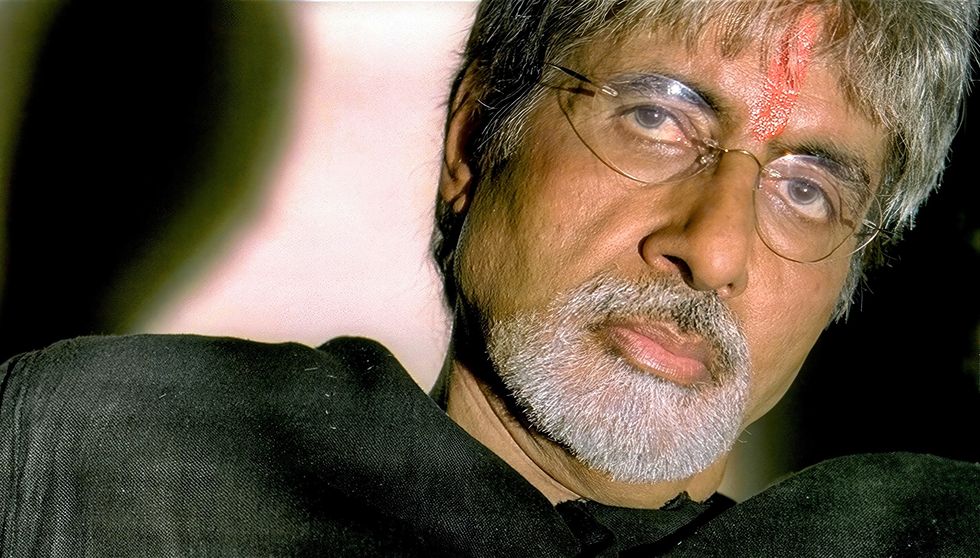 Ram Gopal Varma’s Sarkar marked 20 years of influence and acclaimIMDb
Ram Gopal Varma’s Sarkar marked 20 years of influence and acclaimIMDb
 The statues were the product of a transatlantic effortGetty Iamges
The statues were the product of a transatlantic effortGetty Iamges